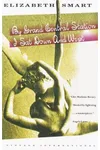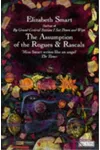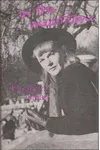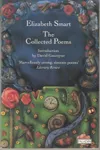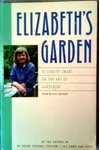Picture a Canadian poet who poured her heart into prose so vivid it feels like a fever dream—meet Elizabeth Smart! Born in Ottawa in 1913, Smart crafted a literary legacy with her raw, lyrical masterpiece, By Grand Central Station I Sat Down and Wept, a novel inspired by her passionate, tumultuous love affair with poet George Barker. Her work, blending poetry and prose, captures the wild highs and crushing lows of love, making her a standout voice in 20th-century literature.
Smart’s life was as bold as her writing. From a privileged upbringing to a bohemian existence in London, she lived unapologetically, defying convention to chase her art and desires. Let’s dive into the world of this remarkable writer whose words still resonate with readers today.
The Making of Elizabeth Smart
Elizabeth Smart was born on December 27, 1913, into a prominent Ottawa family. Her father, Russel Smart, was a lawyer, and their summer home neighbored future Prime Minister William Lyon Mackenzie King. A precocious talent, Smart published her first poem at age 10 and studied music at King’s College in London at 18. Her early love for writing blossomed through travels to New York, Mexico, and California, where she joined a writers’ colony at Big Sur. It was her discovery of George Barker’s poetry in a London bookshop that sparked a life-changing romance and her most famous work.
Elizabeth Smart’s Unforgettable Works
Smart’s By Grand Central Station I Sat Down and Wept (1945) is a prose-poetry novel that chronicles her intense affair with Barker. Described by Angela Carter as “like Madame Bovary blasted by lightning,” its lush, emotional language explores love’s ecstasy and agony. Initially banned in Canada by her mother’s influence, it gained cult status and critical acclaim after its 1966 reissue.
Her second novel, The Assumption of the Rogues & Rascals (1978), offers a sharp, first-person reflection on women’s roles in society, blending wit and introspection. Smart’s poetry collections, like A Bonus (1977) and In the Meantime (1984), showcase her lyrical style, often meditating on love, pain, and nature. Her journals, published posthumously as Necessary Secrets (1986), reveal a vibrant, sensitive mind grappling with self-doubt and passion.
Smart’s style is fearless—her words pulse with raw honesty, drawing comparisons to Sylvia Plath and Frida Kahlo for their unfiltered emotional depth. Whether in prose or poetry, she transforms personal experience into universal truths, making her work timeless.
Why Elizabeth Smart Matters
Elizabeth Smart’s impact lies in her fearless exploration of love and identity, paving the way for confessional feminist literature. Her work inspired artists like Morrissey, who referenced By Grand Central Station in The Smiths’ songs, and Canadian playwright Wendy Lill, who wrote a play about her life. Smart’s ability to weave personal pain into poetic prose made her a modernist icon, influencing writers who value emotional authenticity.
Her legacy endures through reissues of her work and posthumous recognition, including a 2021 Governor General’s Literary Award for the French translation of her Collected Poems. Smart’s story reminds us that art born from vulnerability can resonate across generations.
- Birth Date: December 27, 1913
- Key Works: By Grand Central Station I Sat Down and Wept, The Assumption of the Rogues & Rascals, A Bonus
- Awards: 2021 Governor General’s Literary Award (French translation of Collected Poems)
Snag By Grand Central Station I Sat Down and Wept and dive into Elizabeth Smart’s intoxicating world of poetic prose!
